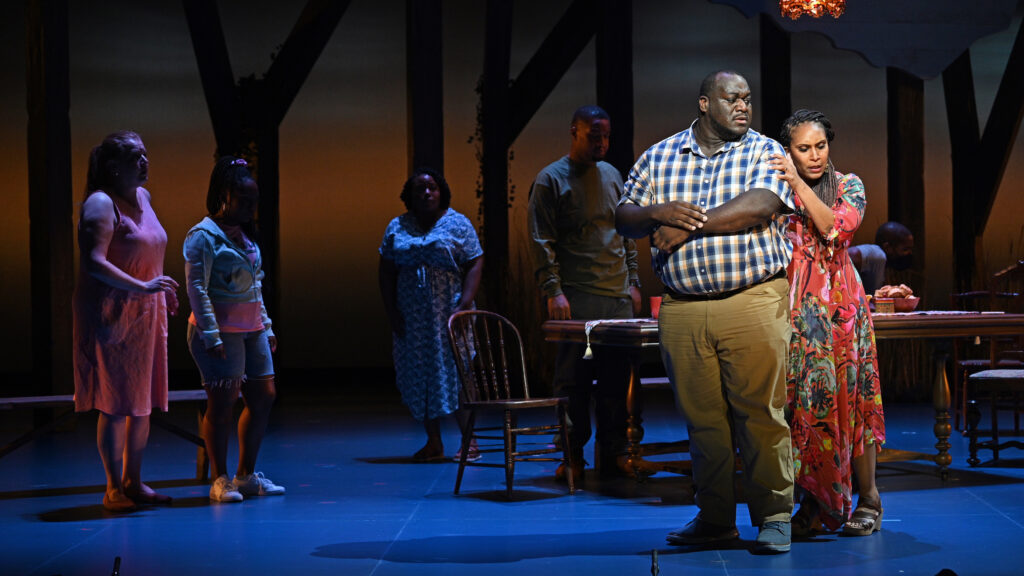By Elizabeth Parker
A new opera, Castor and Patience, takes on the pervasive barriers to land ownership for Black Americans. With a libretto by former poet laureate and Pulitzer Prize winner Tracy K. Smith and a score by composer Gregory Spears, the opera tells the story of two cousins’ struggles in owning and keeping property long held by their family. It premiered at Cincinnati Opera last week.
Smith and Spears started their work together around 2016 talking about a story highlighting how Blacks have been stripped of land ownership. But their ambitions really began to take shape during their research expeditions to the South Carolina and Georgia coasts. There they met with many people including Hilton Head Island resident Emory S. Campbell, a descendant of West Africans brought here as slaves.
Campbell saw the story of his people as a natural starting point.
“This is Black history when we talk about how people settled after the Civil War,” Campbell said. “You have to begin with the Gullah culture, with Gullah people.” That history also includes massive land loss from property law exploitation.
“That’s a story that America doesn’t know very well,” he added.
A family struggles
The story and characters of Castor and Patience began taking shape through Smith’s and Spear’s meetings with Campbell, his family and many others throughout the Sea Islands.
“We learned about people whose families had owned land — Black families in the South — since Reconstruction,” Smith said. “They purchased it from the government by pooling their resources sometimes with other members from their community. And this land, from day one, has been sort of fraught.
The opera, set during the 2008 recession, recounts how Castor, who has grown up in Buffalo, New York, is besieged by creditors. So, he visits his cousin, Patience, at the family homestead nestled in the islands. He wants to sell his share of land to stave off bankruptcy. But Patience resists as she counts losses in the community.
Since emancipation in 1863, Black communities nationwide have suffered massive property loss from legal abuses including forced sales of jointly owned real estate and discriminatory laws. Spears had been reading more about them.
“It’s something I’ve thought a lot about and how in that process can I be a part of creating this piece that is about something reckoning with history which is something that we all must do in this country and the importance of that and how art can play a role in that and really connect an audience emotionally,” he said.
The opera’s characters include Castor’s and Patience’s children who are getting to know each other as well as the betrayals their family has endured. Throughout Patience underscores her efforts in defending the family’s land — as some community members moved away and allowed land speculators and developers to swoop in.
Reflecting personal history
Soprano Talise Travinge, who portrays Patience, identified with many aspects of this story.
“I think Patience found me rather than the other way around,” she said before describing how her extended family from New Orleans had settled in Georgia after Katrina. She described that situation as “another issue of land and people losing land, family losing their land because they couldn’t find the deed, which was then under water.”
But Castor and Patience also delves into other aspects of the Black experience in America such as Castor’s lack of power under dubious credit schemes. In an area, Castor lashes out singing:
You took
My car, my money,
My credit, you’re
Working on my name.
You took my dignity…
More operas are planned
This production is part of Cincinnati Opera’s push to tell grand operas that reflect Black Americans’ experiences.
Meantime, Smith and Spears are working on more operas. Castor and Patience is part of a trio of operas the pair has set out to complete that tell American stories. Their next one, The Righteous, is slated to premiere at Santa Fe Opera in 2024.

